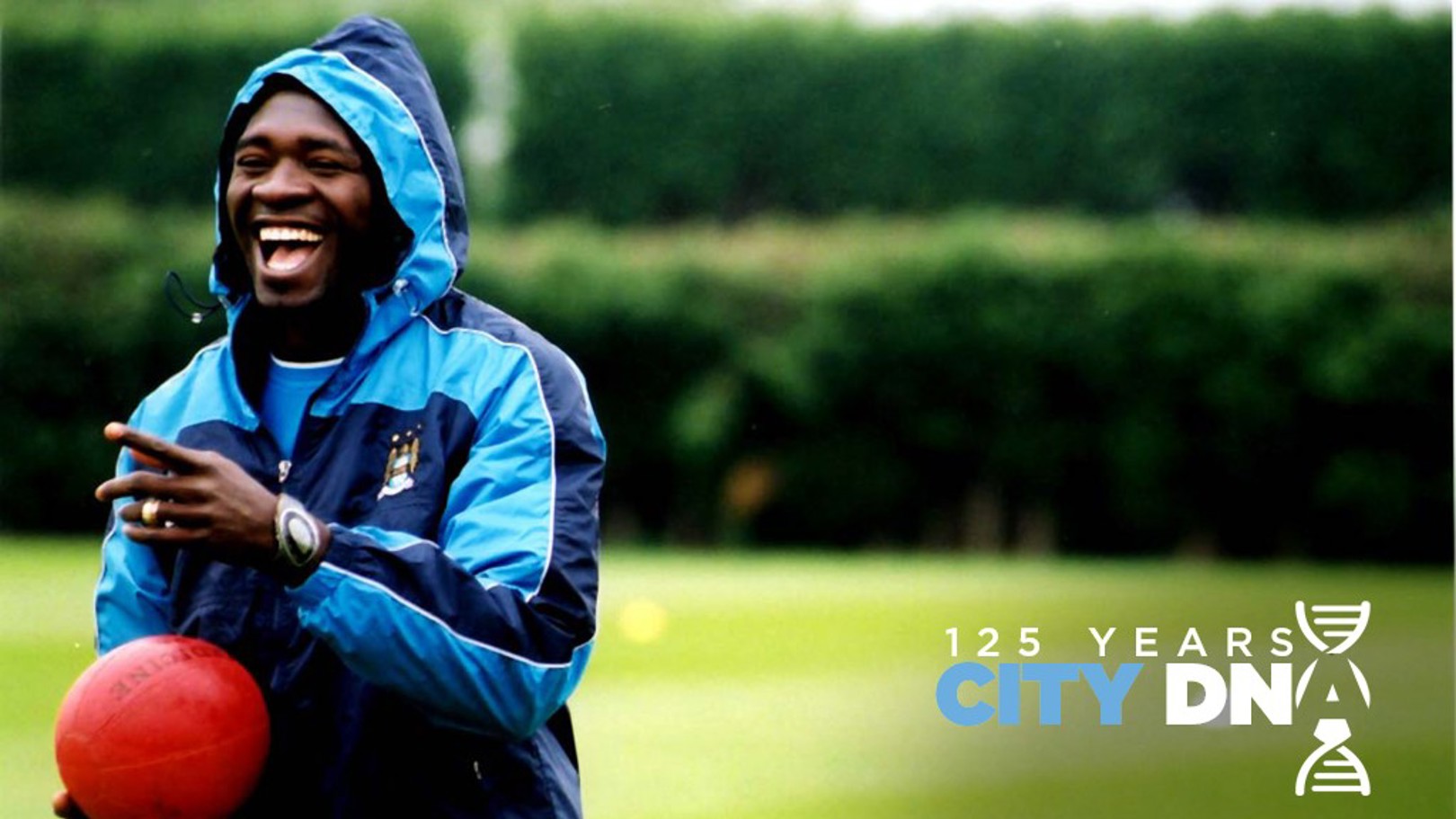Our No.23 shirt has been retired ever since that heart-breaking June day, in tribute to the hugely popular player, whose passing was felt in all corners of the globe and left football in a state of shock.
It remains a tragic moment in the Club’s history.
CITY+ | Sign up to watch exclusive content
READ | City DNA #52: The Boys in Blue (the whole story)
Seventy-three minutes had passed in the 2003 Confederations Cup semi-final between Cameroon and Columbia when ‘Marco’ collapsed in the centre-circle.
Despite attempts to resuscitate him, he was pronounced dead that evening, on 26 June 2003.
A second autopsy was required to identify a previously undetected heart defect as the cause of death.
The instantaneous nature of Marco’s passing made it all the more shocking.
Standing at 6’2, he was an imposing, powerful midfielder, who was central to Cameroon’s back to back African Cup of Nations titles at the turn of the millennium.
He had shone in Europe, too, winning league titles with Lens and Lyon, the latter loaning him to City for the 2002-03 campaign, when he proved himself to be a driving force in Kevin Keegan’s midfield.
He was our second highest scorer with nine goals in 35 appearances and wrote himself into the history books by netting what proved to be the Club’s final goal at Maine Road in a 3-0 victory over Sunderland.
Convinced by his displays, City intended to sign him permanently that summer, before fate cruelly intervened.
But to only focus on Marco’s exploits on the pitch would be a great disservice to a man who was loved as much for his warmth as he was admired for his ability.
“He was the most amazing man I met as a young lad growing up,” recalled Shaun Wright-Phillips, who was in the early stages of his professional career during 2002-03.
“He was so soft, humble, and whenever I needed help or a bit of guidance, he was one of the people that was always there for me.
“And as a player, he was just a beast. He was a big unit, he carried himself well, tackled, and he played good football. You could see that he was moving onto the next level.”
Wright-Phillips’ sentiment echoes the tributes that poured in at the time of Marco’s tragic passing, which impacted football around the world.
There were emotional scenes before the final of the Confederations Cup, with the French team in tears before facing Cameroon.
Back home – where he had set up a sports complex in his name to develop the next generation of African footballers - Marco was given a state funeral, with thousands of people lining the streets.
And Manchester followed suit, reflecting the high regard in which he was held, despite his relatively short stay at City.
Fans turned up in their droves to lay flowers and shirts outside the gates of Maine Road, whilst Manchester Cathedral was packed out as the city came together in tribute.
One thing which was repeatedly referenced was Marco’s smile.
“Marc was not only a special person but a very special person,” said City boss Kevin Keegan at the time.
“We will all miss his smile and his personality. Nothing was ever too much trouble for him, and he was the ultimate professional, loved by everyone in the dressing room and the boardroom.
“I felt it was a privilege to work with him for the past year and we were still in the process of trying to negotiate a deal that would have made him a City player.
“He had the ability to make us all smile and feel better.”
Kevin Horlock, his partner in the City engine room, agreed.
“He was a great athlete, a great footballer and even more than that, a great bloke. He was a fair, old size and he covered every blade of grass.
“He did a lot of my running and he took some stopping. He was one of those players who gave everything and the fans loved that and so did the players.
“I don’t think I have ever seen a picture of him where he doesn’t have a big smile on his face. He made the changing room a better place.”
At Manchester City, we fondly remember his presence, personality and, of course, his big beaming smile.
Photograph supplied by Kevin Cummins.








